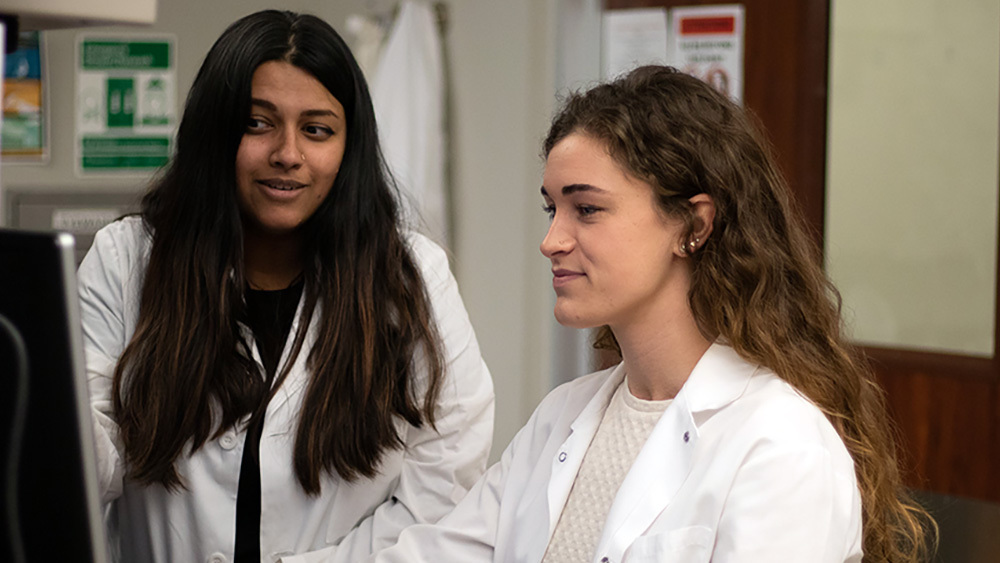
Dr. Shreya Raghavan has received a prestigious Method to Extend Research in Time (R37) (MERIT) grant from the National Cancer Institute, part of the National Institutes of Health (NIH). Raghavan, an assistant professor in the Department of Biomedical Engineering, is only the second researcher at Texas A&M University to receive the highly sought-after MERIT grant.
Raghavan will use the grant to deepen her research on metastasis (development of secondary cancerous sites) of colorectal cancer in the liver. Many patients with colorectal cancer have a high likelihood of metastasis in the liver years after the cancer was removed from their colon. Raghavan hopes to provide patients with an early warning of the possibility of metastasis so that physicians can adequately treat the disease.
The purpose of the MERIT grant is to provide extended funding support over a five-to-seven-year period for researchers who are Early Stage Investigators (ESI). An ESI is a principal investigator (PI) who has completed a terminal research degree within the last 10 years and who has not previously served as a PI for an NIH research grant.
“We’ve come a long way in being able to detect early signs of colorectal cancer,” Raghavan said. “The real problem begins when the cancer has spread or metastasized. Our research allows us to take a patient’s tumor or polyp cells and predict the likelihood that the cancer will metastasize in the liver. This could mean that a patient who is at higher risk might need different treatment or surveillance regimens after surgery.”
Raghavan and the researchers in her lab, the Stem Cell, Cancer, and Immune Tissue Engineering Lab, have created a model that allows them to predict the probability of metastasis for a specific patient using that patient’s cancerous cells.
“After a patient has a tumor or polyp removed from their colon, a scan will often show that they are cancer-free,” Raghavan said. “Unfortunately, many times, a few of the cancer cells will have moved to the liver and are so small that they are undetectable by scans. Years later, these cells will metastasize and create a tumor. Our model allows us to use cells from the patient to predict the likelihood that the patient will experience a metastasis of colorectal cancer at a later time.”
Raghavan is also seeking to aid physicians in determining which treatment will be most effective for each patient. There are currently more than 160 potential cancer treatments for physicians to choose from. Raghavan hopes to help physicians choose the right medicine.
“Using the patient’s cells and our engineered platform, we can funnel down the medicines to determine which medicine will be best for that individual patient,” Raghavan said. “In this way, our method is like personalized therapeutics.”
To conduct her research and aid patients, Raghavan is working with the MD Anderson Cancer Center. Raghavan’s lab is also part of a Cancer Prevention and Research Institute of Texas core facility allowing physicians and researchers from around the state can send samples to be tested using Raghavan’s bioengineered cancer model. In this way, Raghavan is pairing both federal and state funding to improve the health of Texans.
“We are very excited about the results of our research so far,” Raghavan said. “This MERIT grant will enable us to expand our research and make an impact on the health of people around the world.”